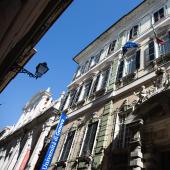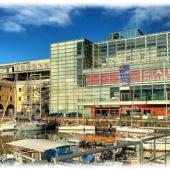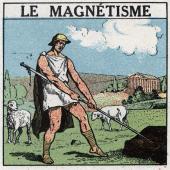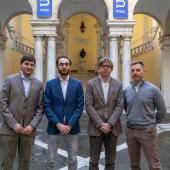European DNA Day Essay Contest 2022

Ogni anno il 25 aprile si celebra a livello internazionale il DNA Day per ricordare la data ufficiale di pubblicazione del lavoro scientifico con il quale James Watson, Francis Crick, Maurice Wilkins, Rosalind Franklin presentarono per la prima volta la struttura del DNA.
In questo contesto, ESHG – European Society of Human Genetics bandisce un concorso (giunto quest'anno alla sua 15a edizione) riservato agli studenti europei degli ultimi due anni delle scuole superiori, denominato European DNA Day Video/Essay Contest 2022, con il quale invita i ragazzi a cimentarsi nella stesura di un elaborato scritto (massimo 750 parole) o multimediale (video di 3 minuti), in lingua inglese, seguendo una traccia fornita dalla Società stessa. I vincitori del concorso ricevono un premio in denaro che può essere utilizzato dalle scuole per acquisire materiali didattici; la premiazione avviene durante la seduta plenaria del congresso annuale della Società. L’iniziativa è patrocinata anche dalla Società Italiana di Genetica Umana (SIGU).
Allo European DNA Day Video/Essay Contest 2022 partecipano 10 scuole superiori liguri per un totale di oltre 230 partecipanti tra studenti e docenti. Le scuole coinvolte sono:
- Liceo G.D. Cassini (Genova)
- Liceo A. D’Oria (Genova)
- IIS Gastaldi-Abba (Genova)
- Liceo M.L.King (Genova)
- Liceo L. Lanfranconi (Genova)
- Liceo Pertini (Genova)
- ISS Mjorana-Giorgi (Genova)
- IIS Da Vigo Nicoloso (Recco, Genova)
- Liceo Marconi (Chiavari)
- Liceo Costa (La Spezia)
Il ruolo di UniGe
Visto l'interesse dimostrato dalle scuole per questo progetto, il DINOGMI – Dipartimento di neuroscienze, riabilitazione, oftalmologia, genetica e scienze materno-infantili dell'Università di Genova propone un ciclo di seminari divulgativi, in modalità telematica, per fornire supporto per la partecipazione al bando di quest'anno.
Il primo incontro in particolare intende fornire agli studenti i concetti di base che permettano loro di seguire i seminari successivi e prevede la presentazione della traccia proposta per quest’anno:
“How can DNA help us to discover ancient human history?”
I seminari
L'Università di Genova propone tre incontri preparatori al contest, con la partecipazione di esperti che uniscono allo spessore scientifico particolari doti divulgative.
21 gennaio 2022 ore 16:30
The past and the future in our DNA: what we are learning from our genome.
Relatrice: dott.ssa Renata Bocciardi (ricercatrice e docente di Genetica Medica; DINOGMI – Università di Genova; UOC Genetica Medica – IRCCS Giannina Gaslini; SIGU)
4 febbraio 2022 ore 16:30
There and back again: the genomic wanderings of European ancestors
Relatrice: dott.ssa Serena Aneli (Dipartimento di Scienze della Sanità Pubblica e Pediatriche – Università degli Studi di Torino)
Abstract: The past lives of our ancestors are written in our genes. Such old stories of deaths and births, migrations and diseases left marks on their descendants’ DNA. Recently, the molecular analysis of modern and ancient DNA, allowed us to read some of those stories, thus retracing our evolution-ary history as modern humans.
DNA whispers that modern humans evolved in Africa, then spread into Eurasia in multiple waves, across deserts and mountains, eventually reaching every corner of the world.
The reconstruction of the winding trails followed by our ancestors is possible thanks to the fact that the people who move leave prints. Time passes by, and some of those prints are covered by dust or by traces of the people who come after them, but many others can still be found un-touched on the ground, in a cave or in our genome.
In the last decade, thanks to the technical advances in molecular biology, we have witnessed an ever-increasing amount of genetic data becoming available to scientists. At the same time, due to the evolution of the bioinformatics approaches, we have been granted the opportunity to explore such a huge amount of genetic data, digging for answers in our and our relatives’ DNAs. There are ancestors in our genome, whispering their stories to those who listen.
18 febbraio 2022 ore 16:30
The genetic profile of the Etruscans: new results from the study of ancient DNA
Relatore: Dr Cosimo Posth (Archaeo- and Palaeogenetics group Institute for Archaeological Sciences & Senckenberg Centre for Human Evolution and Palaeoenvironment University of Tübingen, Germany)
Abstract: The Etruscan civilization occupied a vast area of central Italy known as Etruria during the Iron Age. The history of this population remains enigmatic as well as its extinct language, which has not been fully interpreted until today. In order to clarify the origins and genetic legacy of the Etruscans, we sequenced and analysed ancient DNA of individuals who lived in Tuscany and Lazio from around 3000 years ago onwards. Despite the presence of some individuals with foreign genetic profiles, the local genetic make-up is stably maintained in Etruria across the first millennium BCE. This is overturned during the Roman Imperial period due to a large-scale spread of eastern Mediterranean ancestries in the region. These results show the importance of ancient DNA studies, which alongside archaeological, historical and linguistic evidence are contributing to the reconstruction of the demographic history of our ancestors.






